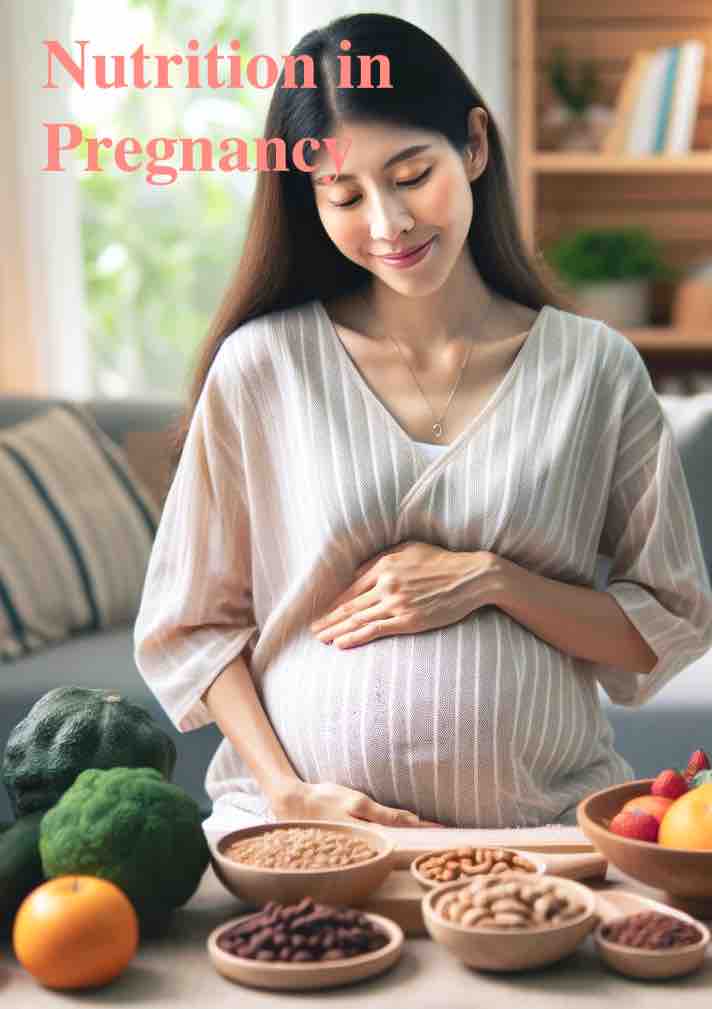
Embarking on the Pre-Pregnancy Journey
As you plan for pregnancy, nutrition plays a pivotal role in preparing your body for this significant life event. A well-nourished body can influence fertility, ease the transition to pregnancy, and lay a robust foundation for your future baby’s health. This comprehensive guide will help you understand the key nutritional considerations in the pre-pregnancy phase.
The Importance of Nutritional Foundations
Before conception, the focus is on building nutrient reserves and achieving a healthy weight, which can significantly impact your fertility and the health of your pregnancy. Here’s what you need to know:
- Folic Acid: Crucial for preventing birth defects, a daily intake of 400-800 micrograms of folic acid is recommended. Sources include leafy greens, fortified cereals, and supplements.
- Iron: Essential for preventing anemia, which can affect fertility. Include iron-rich foods like lean meats, leafy greens, and iron-fortified cereals in your diet.
- Calcium and Vitamin D: Important for bone health. Dairy products fortified plant-based milks, and sunlight exposure help meet these needs.
- Omega-3 Fatty Acids: Beneficial for hormonal balance and reproductive health. Found in fatty fish, flaxseeds, and walnuts.
- Overall Diet: A balanced diet with a variety of fruits, vegetables, whole grains, lean proteins, and healthy fats is key.
Achieving a Healthy Weight
Weight can influence fertility and the risk of complications during pregnancy. Here’s how to manage it effectively:
- Understanding BMI: Your Body Mass Index (BMI) can be a useful tool to assess if you’re in a healthy weight range.
- Balanced Diet and Exercise: Focus on a nutrient-dense diet and regular physical activity to achieve and maintain a healthy weight.
Managing Chronic Conditions
If you have chronic conditions like diabetes or hypertension, managing these through diet, exercise, and medication (if prescribed) is crucial before conception. Consult with healthcare providers for a tailored plan.
Limiting Harmful Substances
Certain substances can adversely affect fertility and a future pregnancy:
- Caffeine: High caffeine intake can affect fertility. Limit coffee and other caffeinated beverages.
- Alcohol and Smoking: Eliminate alcohol and tobacco, as they can harm fertility and increase the risk of complications.
Supplements: What You Need to Know
While a balanced diet is crucial, some nutrients may need supplementation:
- Prenatal Vitamins: Starting a prenatal vitamin supplement before conception can ensure you get adequate folic acid and other essential nutrients.
- Special Needs: Depending on your health status or dietary restrictions (like veganism), you might need specific supplements like B12 or iron.
Emotional Well-being and Nutrition
Stress management and emotional health are integral to fertility. Practices like mindfulness, yoga, and adequate sleep can positively impact your nutritional choices and overall well-being.
Next Steps: Consult and Plan
As you gear up for pregnancy, remember that every woman’s body and nutritional needs are unique. Consult with healthcare professionals for personalized advice and dietary planning.
Join Us on This Journey
Stay tuned for our next post, where we dive into the nutritional specifics of the first trimester, ensuring you start your pregnancy on the healthiest note possible. Let’s nourish your path to motherhood with knowledge and care!
FAQs for Pre-Pregnancy Nutrition
- What is the recommended daily intake of folic acid before pregnancy?
- Aim for 400-800 micrograms of folic acid daily. This can be achieved through diet and supplements.
- How does weight affect fertility and pregnancy?
- Both underweight and overweight can impact fertility and increase the risk of complications in pregnancy. Aiming for a healthy BMI through a balanced diet and exercise is advisable.
- Can I continue my coffee habit while trying to conceive?
- Moderate caffeine intake is usually fine, but high levels can affect fertility. Limit intake to about 200-300 mg per day, equivalent to 2-3 cups of coffee.
- Should I start taking prenatal vitamins before getting pregnant?
- Yes, starting a prenatal vitamin supplement before conception is recommended to ensure adequate intake of essential nutrients like folic acid.
- What foods are rich in folic acid?
- Leafy green vegetables, fortified cereals, citrus fruits, and beans are great sources of folic acid.
- Is it necessary to adjust my diet if I have a chronic condition like diabetes?
- Yes, managing chronic conditions through diet is crucial. Consult with your healthcare provider for a tailored dietary plan.
- How can I ensure I’m getting enough iron?
- Include iron-rich foods like lean meats, leafy greens, and iron-fortified cereals in your diet. Pairing these with vitamin C-rich foods can enhance absorption.
- Are there any foods I should avoid when trying to conceive?
- Limit high-mercury fish, unprocessed cheeses, and raw or undercooked meats to reduce the risk of foodborne illnesses.
- Can stress affect my nutritional choices and fertility?
- Yes, stress can impact dietary choices and fertility. Engaging in stress-reduction activities and ensuring a balanced diet can help.
- How important is physical activity during the pre-pregnancy stage?
- Regular physical activity can help achieve a healthy weight, reduce stress, and improve overall well-being, all of which are beneficial when planning for pregnancy.
Blog Tags for the Post
pre-pregnancy nutrition, folic acid, healthy weight, fertility diet, prenatal vitamins, balanced diet, managing chronic conditions, reducing caffeine, stress management, physical activity for fertility








